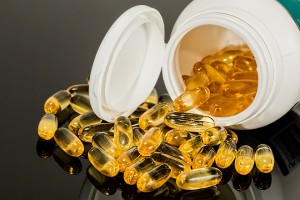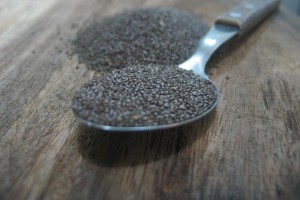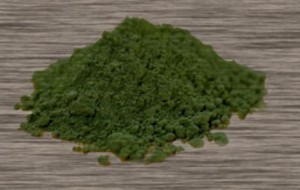What is Omega-3?

Omega-3 is a type of fatty acid that is mainly found in fish, e.g. salmon and tuna. It is important for our well being and health, however, it is a substance that must be consumed as our bodies cannot make them. Since it is mainly found in fish and fish products, omega-3 nutrition has always been a hot topic for vegans.
Generally speaking, there are three types of omega-3 that we are concerned about.
ALA (Alpha Linolenic Acid)
Found in plant based oils and is broken down into EPA and DHA, however, the process is slow and inefficient.
EPA (Eicosapentaenoic Acid)
Found in fatty fish and can be broken down in the human body from consumption of ALA.
DHA (Docosahexenoic Acid)
Found in fatty fish and can be broken down in the human body from consumption of ALA.
Why is Omega-3 Important?
Omega-3 is found in our cell membranes and is linked to a number of areas such as heart disease, depression, the nervous system and brain functionality just to name a few. ALA is a non-active substance within our bodies but our bodies can actually break them down into the active acids EPA and DHA.
There are links between EPA and mental health issues, such as depression and dyslexia, as well as other health issues such as heart problems and bone conditions. DHA is especially important with younger people where it is shown to help with brain development and cognitive functionality, or with people who are showing signs of Alzheimers or dementia where DHA may help to prevent further loss of brain tissue.
How Do I Get Omega-3?
ALA is actually naturally found in a number of plants and nuts. Some examples of naturally occurring, vegan friendly ALA dietary supplements include:
- Flaxseeds – over 1600mg of omega-3 per tablespoon

- Chia seeds – over 1600mg of omega-3 per tablespoon

- Spirulina – 58mg of omega-3 per tablespoon

- Seaweed – 58mg of omega-3 per tablespoon. Seaweed also has the added bonus of being the only source that also has EPA and DHA.

So is it enough just to increase ALA intake?
It is true that the human body is able to break down ALA into EPA and DHA, however, this process is inefficient and slow. Whether or not this is enough for your body is still a matter of debate with strong arguments supporting both sides.
What is your favourite omega-3 food? How do you supplement your omega-3 intake without eating any fish or fish products?







Leave a Reply